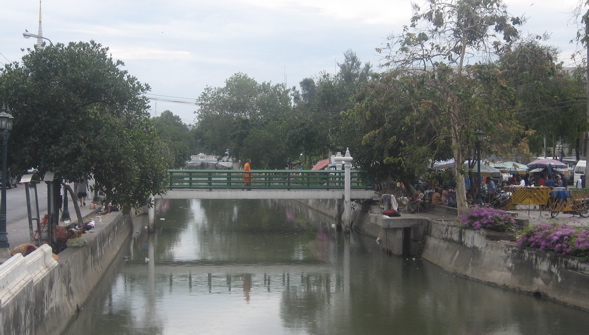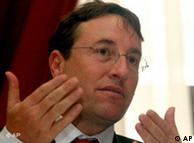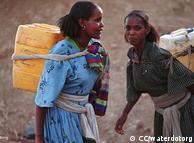COP 17’s Youth Message
One of the most important speeches to take place at the COP 17 talks in Durban, South Africa didn’t come from a high-ranking politician, it didn’t come from an environmentalist organization, it didn’t even come from a delegate. One young woman made a splash at the conference, and her name is Anjali Appadurai. The college student from British Columbia gave an inspired speech on climate change on behalf of her generation, and it impressed conference participants as well as people around the world. Check it out!
A loving lament for a dwindling resource
This little tune sounds like a hymn for today’s discussion about the use of fossil fuels, but it’s more than 30 years old. The British punk-rock band Newton Neurotics released the song as their second single. It’s possible to see the song as a reaction to the second oil crisis of 1979 when the Iranian revolution and the Iran-Iraq war caused a stop of the oil production in both countries and oil prices went through the roof. But it is still very much up to date. Have a look at the lyrics:
“What’s gonna happen when the buses don’t run / and what’s gonna happen when the winter comes / what are you / when the oil runs out?”
or
“Are you prepared for such a drastic change of life style / you say “yeah” I don’t believe you,look at your home / the things that you own, the job that you work in / they all could go.”
Bangkok´s dressed up – at first sight
 Thailand´s capital is gleaming. Not just because of the smiling people in the streets, but especially for the week-long birthday celebrations in honor of Bhumibol Adulyadej, the country’s king who turned 85 last Monday. A day before his birthday, the flood in Inner Bangkok was officially pronounced over. The city’s governor Sukhumbhand Paribatra declared that the situation in eleven districts had eased and that locals could return to their homes.
Thailand´s capital is gleaming. Not just because of the smiling people in the streets, but especially for the week-long birthday celebrations in honor of Bhumibol Adulyadej, the country’s king who turned 85 last Monday. A day before his birthday, the flood in Inner Bangkok was officially pronounced over. The city’s governor Sukhumbhand Paribatra declared that the situation in eleven districts had eased and that locals could return to their homes.
Since Monday the inhabitants are celebrating, the Grand Temple and the ministries are sparkling with fairy lights, and it appears that cleaning brigades are constantly out and about to sweep the streets – at least you can´t find any litter anywhere.
Well, at first sight. Only a few meters away from the celebrations you stumble into another side of Bangkok – its grungy one. The city’s canals, like this one near the Great Palace, are nothing to celebrate about. You literally have to hold your nose when the stinky grime – including dead fish, plastic bottles and sewage – passes you by. But it doesn’t stop there: The smelly mix continues on its way into the Mae Nam Chao Phraya, the river flowing through the city – and pollutes the environment.
Women Most at Risk from Climate Disasters
Women, particularly those living in mountain regions in developing countries, are facing disproportionately high risks to their livelihoods and health from climate change. That is the result from a new report entiteled “Women at the Frontline of Climate Change: Gender Risks and Hopes.“ The report has been released at the UN Climate Change Conference (COP17) in Durban by the United Nations Environment Programme (UNEP).
Investing in low carbon, resource efficient green technologies, water harvesting and fuel wood alternatives can strengthen climate change adaptation and improve women’s livelihoods, says the report. In parts of Asia and Africa, where the majority of the agricultural workforce are female, the impacts of such disasters have a major impact on women’s income, food security and health.

Achim Steiner, United Nations Environment Programme (UNEP)
“Women often play a stronger role than men in the management of ecosystem services and food security. Hence, sustainable adaptation must focus on gender and the role of women if it is to become successful”, said UN Under-Secretary General and UNEP Executive Director, Achim Steiner. “Women’s voices, responsibilities and knowledge on the environment and the challenges they face will need to be made a central part of Governments’ adaptive responses to a rapidly changing climate.” According to the report, women in communities vulnerable to climate change are often more likely than men to lose their lives during natural disasters, due to poor access to coping strategies such as basic lifesaving skills or cultural factors that restrict the mobility of women.
More on that issue on ideasforacoolerworld.org/en
At mid-point in Durban

The COP17 climate conference in Durban is at mid-point and the prospects for success are not looking very bright. Since this weekend the political leaders have started to arrive to confront some of the problematic issues. There will probably be some compromises being worked out but fears remain that this won’t be enough to tackle the worsening climate situation.
The hottest topic of course is the future of the Kyoto Protocol. Though the developing countries have been fighting for the protocol’s survival it seems that some of the rich nations want, to say the least, some adjustments. Critics say, that they want to get rid of it. In last week’s talks, the European Union came up with some ideas to keep Kyoto alive, through a decision or a declaration. But for this, the EU wants to extract a huge concession, that all “major economies” agree to start negotiating for a new legally binding treaty that will take in effect in 2020. Problem is, that there is no definition of what a “major economy” is. Among developing countries one might think of those with a large population. But on a per-capita basis, they a still developing countries. And that’s the way the developing countries are looking at it. So it is not surprising that developing countries like China, Brazil or India are not interested in taking up talks about this issue. How this story of the Kyoto Protocol is going to end is hard to say. A quick death is unlikely. Especially given the protest this might arouse and the bad name this will give to those who bury it.
The Durban conference is also debating on how to put a new Green Climate Fund into operations. Disputes remain on the fund’s governance. If the is an agreement, it may be Durban biggest but also only visible success. But the are still a couple of more days to go.









Feedback